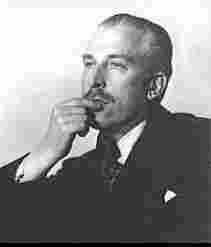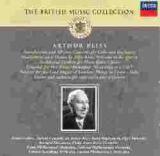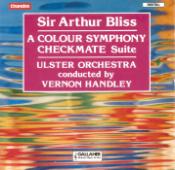Sir Arthur Bliss in a Nutshell

A Brief Biography
|
1891
|
Born in Hawthornden, Queen’s Ride, Barnes,
London on 2nd August
|
|
1905
|
Enters Rugby School
|
|
1909
|
First performance of the Trio for Clarinet,
Cello and Piano
|
|
1910
|
Goes up to Pembroke College, Cambridge
|
|
1913
|
Enters Royal College of Music, London
|
|
1914
|
Enlists in the 13th Battalion
of the Royal Fusiliers
|
|
1919
|
Demobilised from the army, Bliss resumes
study at the Royal College of Music
|
|
1920
|
Joins the teaching staff at the Royal College
of Music
|
|
1921
|
Becomes the conductor of the Portsmouth
Philharmonic Society
|
|
1922
|
First performance of ‘A Colour Symphony’
|
|
1923
|
Leaves the United Kingdom for California
|
|
1926
|
Composes Introduction and Allegro for Leopold
Stokowski and the Philadelphia Orchestra
|
|
1930
|
Composes Morning Heroes
|
|
1935
|
Composes the film music for ‘Things to
Come’
|
|
1937
|
Composes the ballet ‘Checkmate’
|
|
1938
|
Composes the Piano Concerto in Bb
|
|
1942-44
|
Director of Music at the BBC
|
|
1950
|
Receives Knighthood
|
|
1953
|
Appointed Master of the Queen’s Musick
|
|
1975
|
Died in London on 27th March
1975
|
Five Key Works
A Colour Symphony (1922)
Morning Heroes (1930)
Checkmate - a Ballet (1937)
Piano Concerto in Bb (1938)
Introduction and Allegro (1926)
Key Biography
As I Remember - Arthur Bliss, London,
Faber, 1970; Revised, Thames Publishing, 1985
Bliss on Music - Selected Writings of
Arthur Bliss 1920 -1975 OUP 1991
Two Key CDs
If you can only listen to two CDs of music by
Sir Arthur Bliss:-

The British Music Collection - Sir Arthur Bliss
Decca 470 186-2
Includes Cello Concerto, Introduction and
Allegro, and Meditations on a Theme of John Blow. Fanfares and music
from film 'Things to Come.'

Colour Symphony Chandos CHAN 8503
Ulster Orchestra conducted by Vernon Handley
Includes Checkmate Ballet Suite.
And last but not least, if you have only time
for one work -
A Colour Symphony on the Chandos disc
mentioned above. This is a great performance and serves as an excellent
introduction to the music of Sir Arthur Bliss.
Return to Sir Arthur Bliss Homepage


 Return to:
Music on the Web
Return to:
Music on the Web